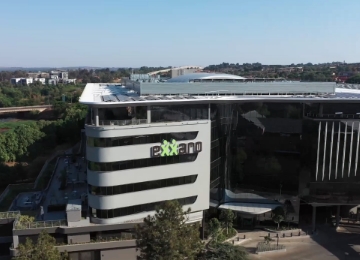THE IMPLEMENTATION OF EXXARO’S BELFAST PROJECT BETWEEN 2017 AND 2019 IN THE EMAKHAZENI MUNICIPALITY IN MPUMALANGA PROVINCE NECESSITATED THE RELOCATION OF 32 NON-LANDOWNING HOUSEHOLDS, WHICH COMPRISED MAINLY OF FARMWORKERS EMPLOYED OR PREVIOUSLY EMPLOYED ON SURROUNDING COMMERCIAL FARMING OPERATIONS.
The process kicked off in 2014 when Exxaro appointed consultants to develop a resettlement action plan to guide the organisation on the steps to be undertaken during the relocation of the affected households and restoration of livelihoods.
Methodology
Activities undertaken during development of the RAP included:
Establishment of a resettlement working group (RWG), which constituted the primary forum for involving the resettlement community in decisions that would affect them;
Consultation with other relevant stakeholders;
A census, socio-economic and asset survey of the effected community;
Additional data collection (including a survey of communal assets belonging to the resettlement community);
Identification of a suitable resettlement site;
Development and sign-off of resettlement agreements; and
Identification of viable livelihood restoration options.
Resettlement-related project impacts
Number of households affected: 32
Number of individuals needing to be relocated: 185
Number of residential structures: 95
Number of other structures (livestock pens, storage sheds etc): 36
Crops: 13 households had vegetables gardens, two cultivated maize and three others grew fruit trees.
Livestock: Animals needing to be accommodated included 358 poultry, 102 head of cattle, 32 pigs, and six sheep.
Consultation and participation
The process kickstarted with extensive consultations with the affected parties and engagements continued until completion of the project. The most significant milestones in the process were the development and adoption of a formal terms of reference to guide the proceedings of the RWG; the announcement of a moratorium on the establishment of new households in the resettlement community; and the sign-off of individual resettlement agreements by each of the affected households.
Agreement framework
The agreement framework defined who would be eligible for compensation, what type of compensation would be provided for which affected or displaced assets, and how this compensation would be effected (eg whether it would be in cash or through replacement of the assets). The agreement framework was based on the Relocation Policy of Exxaro which is based on the IFC’s PS5 guidelines on Land Acquisition and Involuntary Resettlement, as well as relevant South African legislation. The agreement framework was formally accepted by the RWG, and formed the basis of individual agreements with each household.
Resettlement site
Seven potential resettlement sites were identified, of which two were selected by the community — the first for homes and the second for potential agricultural projects. A total of 34 plots of land, each 2 500m2 in extent, were established with 500m2 reserved for a residence and other buildings and the remainder for various agricultural activities including poultry and small livestock, fruit trees and vegetable gardens. Services supplied to the site included roads, stormwater drainage, potable water, sanitation, fencing and electricity.
Livelihood restoration
Through its Relocation Policy, Exxaro has committed itself to the principle that no households should be worse off after resettlement than what they were before. The inclusion of a livelihood restoration programme in all Exxaro resettlement processes is a means of giving effect to this commitment. A number of potential livelihood restoration projects were identified for the Belfast resettlement project.
Grievance redress and dispute resolution
The RAP included a resettlement-related grievance procedure aimed at resolving issues around resettlement, compensation and livelihood restoration.
Outcome
Of the 32 households identified for relocation, 31 were moved successfully in 2019 at the cost of R35 million. Following the death of the head of one of the households in 2019, his heirs have declined to move. The situation has required legal intervention and negotiations continue.


